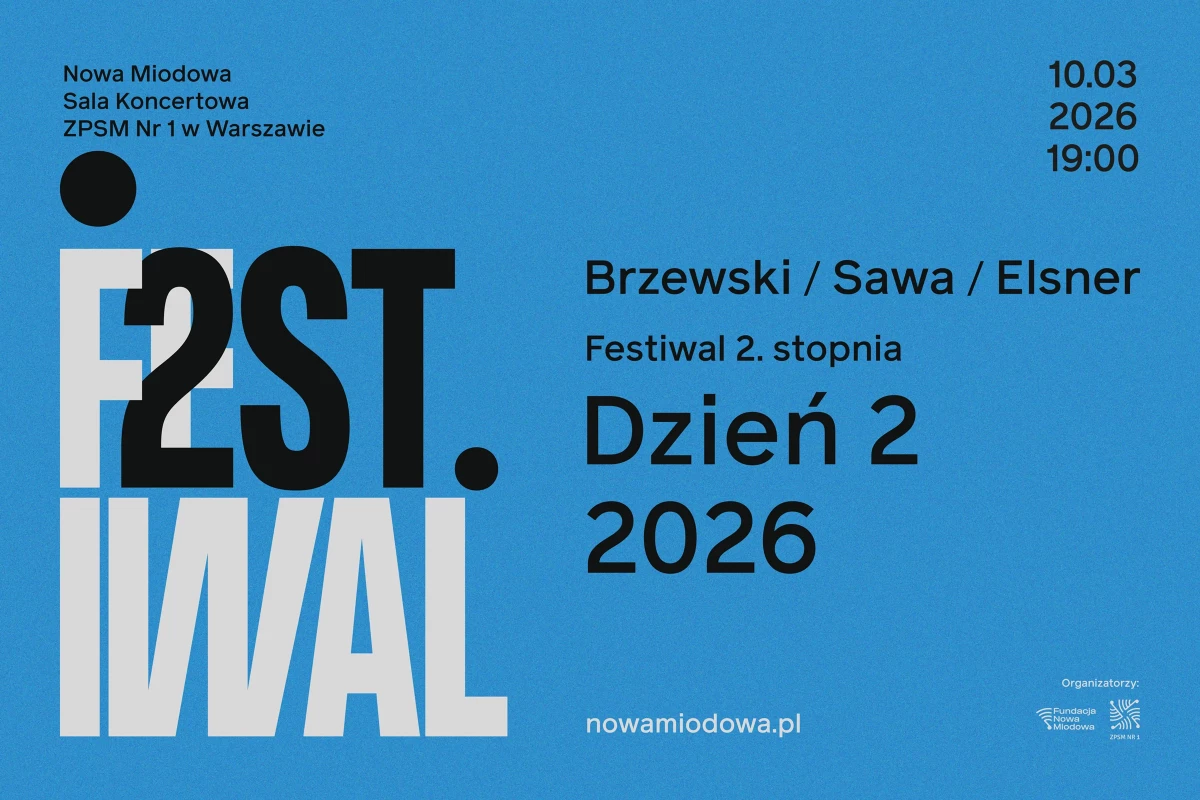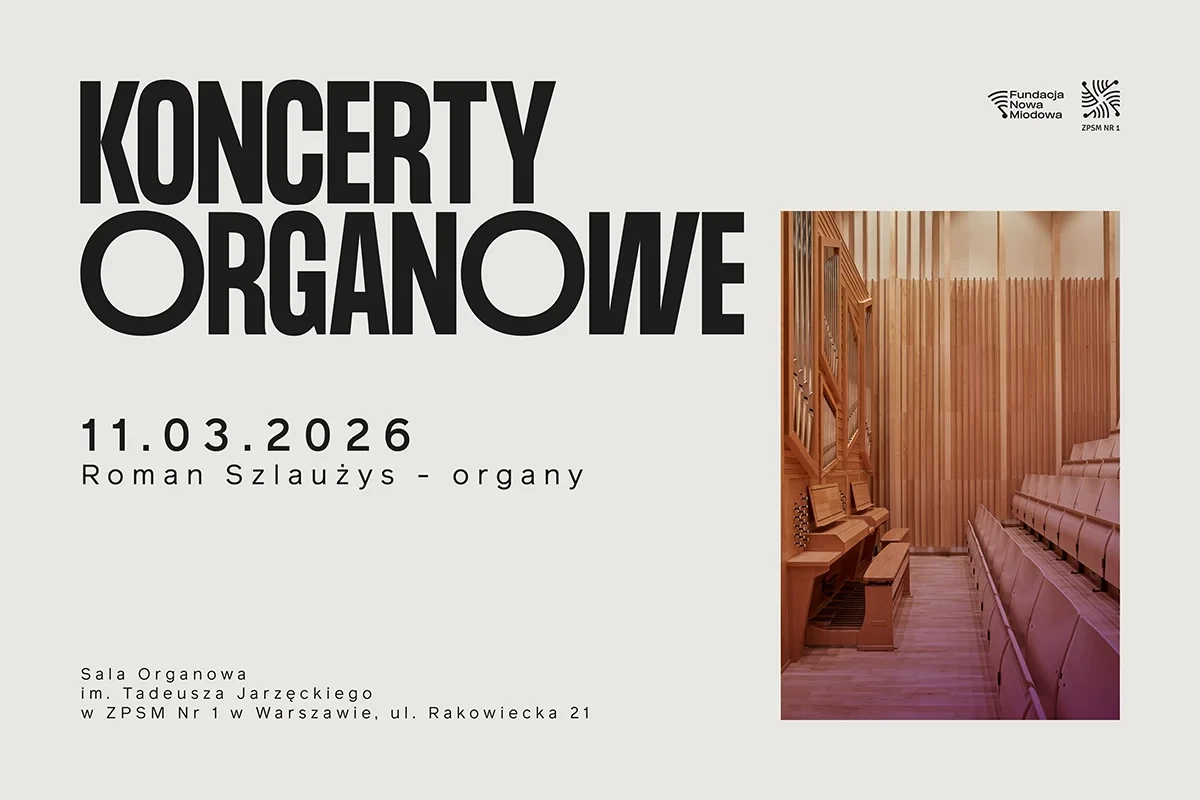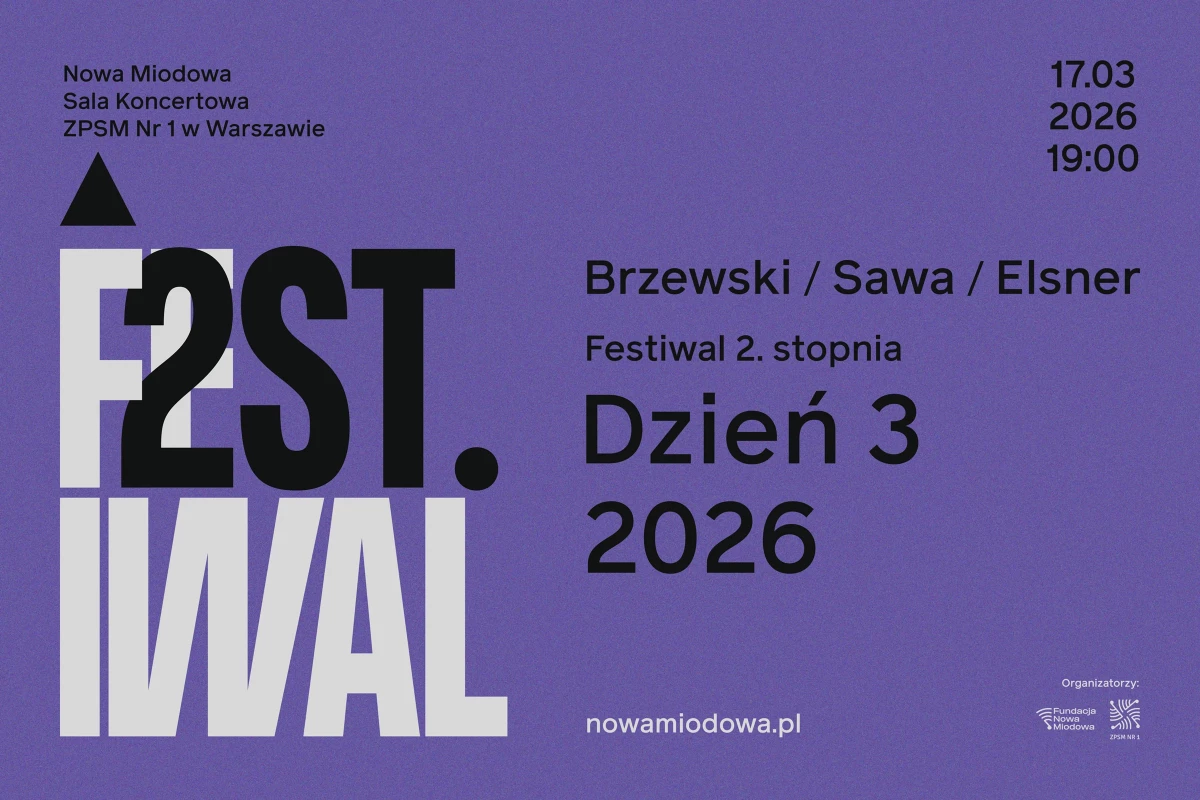
The first in a series of concerts as part of the cooperation of the State Music School Complex No. 1 with the Jerzy Semkow Polish Sinfonia Iuventus Orchestra.
Programme:
A. Dvořák Cello Concerto in B minor, Op. 104
E. Grieg Piano Concerto in A minor, Op. 16
G. Rossini Introduzione, tema e variazioni, per Clarinetto e Orchestra
Performers:
Piotr Olesz cello
Rio Ueyama piano
Maria Kazik clarinet
The Jerzy Semkow Polish Sinfonia Iuventus Orchestra
Marek Wroniszewski conductor
Tickets:
The pool of tickets for guests from outside ZPSM No. 1 has been finished.
More information:
The first concert in the new, jubilee season of Sinfonia Iuventus as part of the highly acclaimed and successful “Nowa Miodowa. Sinfonia Iuventus” programme will once again enable audiences to see the orchestra under the direction of Marek Wroniszewski and the talented students of State Music School No. 1. This is a particularly appealing manifestation of the orchestra’s mission to support and inspire young musicians on the cusp of their professional careers, furnishing them valuable opportunities to collaborate with a professional (though still young!) ensemble. Three soloists, cellist Piotr Olesz, pianist Rio Ueyama and clarinettist Maria Kazik, will be featured as performers of a fascinating and ambitious repertoire.
Full of romantic rapture and dazzling virtuosity, Antonín Dvořák's Cello Concerto in B minor became a confirmed “canon” in musical literature for this instrument following its premiere even though ... it almost didn’t exist! This is because the composer nursed reservations about the cello for a long time, believing it to be mainly an instrument for the orchestra. In the end, he succumbed to many years of persuasion by virtuoso Hanuš Wihan, completing his masterpiece in 1895 (during the public premiere in London, it was not Wihan but Leo Stern who took part).
Edvard Grieg was only 25-years-old when he wrote his Piano Concerto in A minor, but had already embarked on an independent creative path after joining the outstanding workshop at the Leipzig Conservatory (where he also experienced a musical fascination with Schumann’s music, which is particularly evident in the concerto) and discovered an ideological vector for his creativity inspired by Norwegian folklore and epic stories. These themes are present in this piece, particularly in the raw “northern” and rhapsodic character of the first movement and the dancing rhythms of the finale (which make use of halling and springar dance rhythms). The concerto premiere in 1868 turned out to be a great success and the work made Grieg famous throughout Europe, but this did not persuade him to compose other concertos, despite many proposals and offers. It remained his only composition of this genre, and he later leaned mainly towards intimate, lyrical compositions – piano works and songs.
One of the greatest geniuses in opera, Gioachino Rossini, did not leave behind many works outside of the stage, and even a few of these refer often to operas. Probably composed (1822) for Neapolitan clarinettist Alessandro Abate, Introduzione, tema e variazioni for clarinet and orchestra, with the composer’s usual grace and humour, elaborates on themes from his operas Mosè in Egitto and La donna del lago.
Upcoming events



